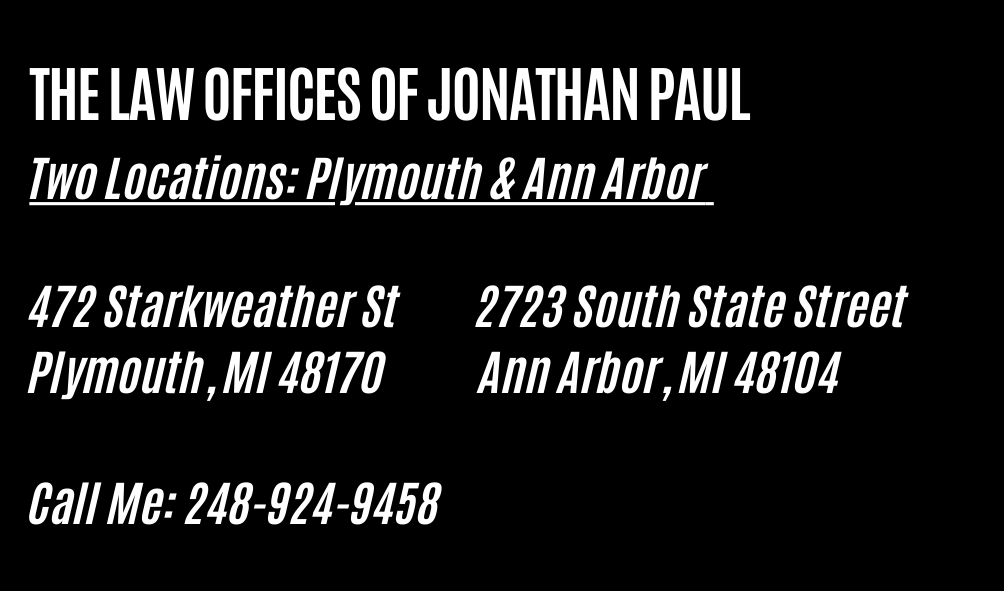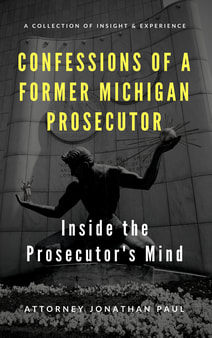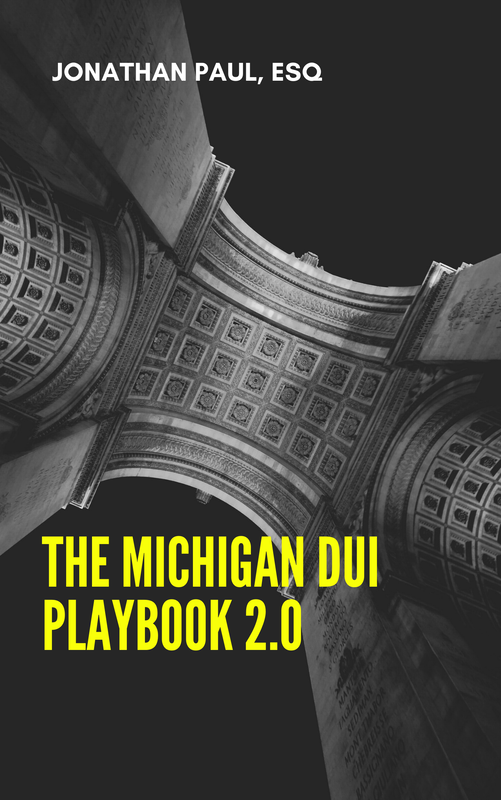|
The most common start to a Michigan DUI offense is with a traffic stop conducted by a police officer for a violation of a traffic offense. In Michigan MCL 257.724(1) allows a police officer to stop a vehicle, detain a driver and issue a citation for any witnessed violation of the Michigan Vehicle Code or civil infraction.
Without a violation of the Vehicle Code, an officer is required to have an ‘individualized, articulable suspicion’ for a stop in the absence of traffic or equipment violations.” “In order to effectuate a valid traffic stop, a police officer must have an articulable and reasonable suspicion that a vehicle or one of its occupants is subject to seizure for a violation of law.” What is not allowed in Michigan is a pretext stop of a motor vehicle. This means the police officer pulled over the driver, because she was driving a red jeep, or the officer pulled over the driver, because of their race or national origin. A police officer in reality would never admit to it, but equally, the cop can’t say “well I had a hunch the driver was drunk” or “they just left a bar, and I pulled them over”. If we have a case where the cop is relying on assumptions (leaving a bar) rather than actual observation (ran a red light) to make the stop, we have a defense to your DUI case. I file motions all of the time on DUI cases in Michigan, when there is no evidence that the traffic code was violated, and the officer had no legal reason for conducting the stop. I see a lot of officers that put the “reason” in their police report, but a quick review of the available video or audio indicate that the police report is not accurate on that account. Officers don’t typically tell the driver every reason why they pulled them over, or even put it in their police report, because they want to keep it as vague as possible in case they need to embellish a bit later on. I purposely lock police officers into their police reports so they can’t reach for extra reasons for the stop. Here is an example Me: Officer, before we proceed, I would like you to take a look at your police report, and let myself and the court know if there is anything you would like to add to the report at this time Officer: It looks good to me Me: Ok, I just want to be sure. I know you’re a very detailed officer who keeps good records, and documents any and all important facts and observations, so are you sure you wouldn’t like to add something? Officer: No, I’m good. Me: Officer, you stated on direct that you pulled my client over for not using a turn signal as they turned left onto Grand River Avenue, is that an accurate statement? Officer: Yes Me: Isn’t it also true that you made this observation from about 300 feet away at night with heavy rain and multiple vehicles in the area. Officer: I saw what I saw Me: Officer, I’d like to you to take a moment to watch the in-car dash camera on the incident, and what I believe to be the moment where my client made that turn. (video reveals that due to the weather conditions, time of night and distance that it’s not clear if a turn signal was used) Officer: I saw what I saw, and it doesn’t matter, because I then caught him speeding and weaving in and out of lanes. Me: Officer, show me where in your police report it indicates my client was either speeding or weaving. Officer: Well I didn’t put it in there Me: Officer, I gave you two chances to amend you report, to add all the relevant and important facts into the report, and you did not do so. Officer: I forgot about those until now While the judge will still weigh the new “reasons” for the traffic stop as part of his/her decision, we’ve hurt the officer’s credibility in that they are now only adding these new set of facts after their original facts were at least partially called into question. The officer only added in facts when they were desperate, and we’ve locked the officer into his police report at the beginning where when they make these additions, it’s easier to argue lack of credibility. In contrast, I get cases where it’s quite obvious that the police officer pulled over the car, because they suspected a drunk driver or they simply pulled the car over because they wanted to; as long as a traffic violation was committed, the real reason no longer matters. Another way a police officer can pull someone over without observing a violation is by running the license plate of that vehicle to see the status of the registration and insurance, and they officer can assume the registered owner is the one driving the same vehicle, which happens if the registered owner has a warrant for their arrest, and an officer stumbles upon that car and runs the license plate. Officers like to get creative when they want to pull over a vehicle, and may cite a dangling object in the rearview mirror, or a trailer hitch, or even a license plate cover blocking access to the registration sticker. All of these reasons have been challenged by me, and other lawyers in courts around Michigan, and are fact specific, with cases going either way on motions for dismissal. If you’ve been charged with a DUI in Michigan, and you disagree with the reason provided by the officer in his police report, such as running a red light or not using a turn signal to turn or switch lanes then we’re going to file a motion to in pursuit of a ruling for an illegal stop, and for the evidence to be suppressed. If there is no physical evidence such as a video to back us up, the argument has a steeper hill to climb, as it is the officer’s credibility on the stand, but in my experience if the officer is lying about the traffic stop, he/she is likely lying about other things, and if we can put their credibility into question then we may be able to sway a judge to grant our motion to suppress on this type of issue. Comments are closed.
|
Click to Email Me Categories
All
|
Ann Arbor Office LocationPlymouth Office Location |
Representing DUI Clients in MichiganRepresenting clients charged with a DUI in Ann Arbor, Canton, Brighton, Howell, Saline, Adrian, Taylor, Plymouth, Northville, Westland, Ypsilanti, Pittsfield Towsnhip, Warren, Sterling Heights, Farmington, Pontiac, Romulus, Lansing, Novi, South Lyon, Southfield, Birmingham, Bloomfield Hills, Royal Oak, Troy, Rochester, Jackson, East Lansing, Garden City, Livonia, Dearborn, Detroit, St Clair Shores, Hazel Park, Ferndale, Madison Heights, Waterford, Milford, Shelby Township Clarkston, Oak Park, Berkley, Fraser, Sterling Heights, Clinton Township and others throughout Washtenaw, Wayne, Monroe, Jackson, Genesee, Macomb, Ingham, Lenawee, Livingston and Oakland County.
|








